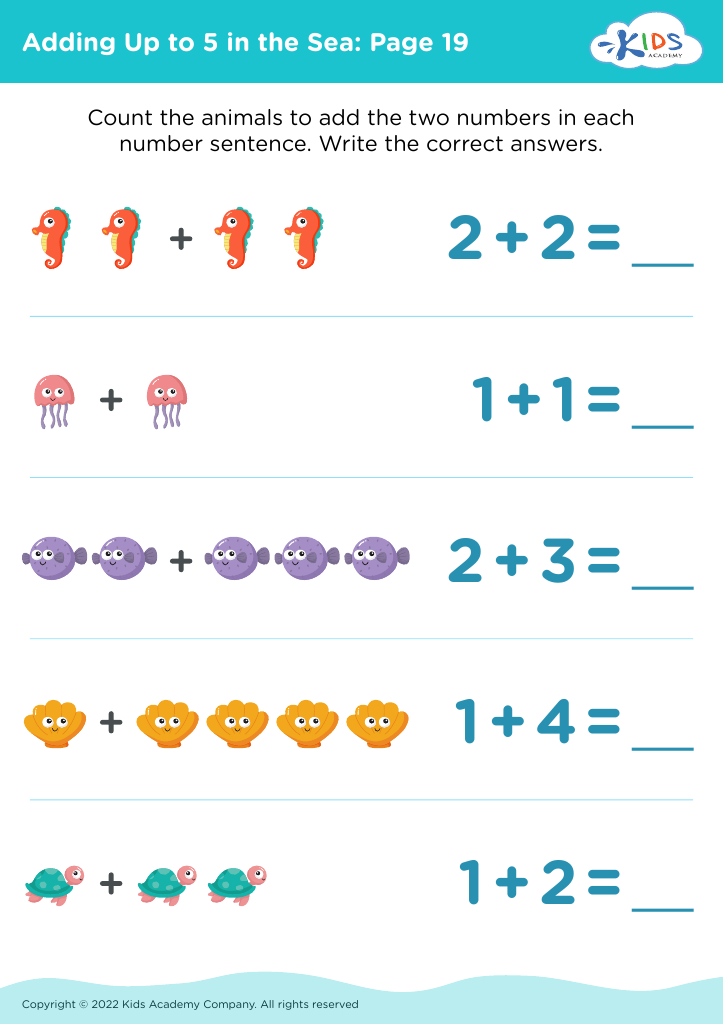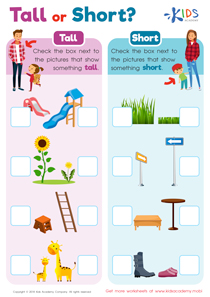Understanding Sequences Preschool Math Worksheets
5 filtered results
-
From - To
Our "Understanding Sequences Preschool Math Worksheets" offer an engaging way for young learners to develop essential mathematical skills. These worksheets help children recognize and complete patterns, understand the concept of order, and boost critical thinking abilities. Featuring fun, age-appropriate illustrations and exercises, these resources simplify sequencing concepts, making learning enjoyable and effective. Perfect for both classroom and home use, our worksheets are designed to cater to various skill levels and learning styles, ensuring every child can grasp and master sequencing.
Fuel your preschooler's math journey with our expertly crafted worksheets, turning foundational skills into interactive adventures in learning!
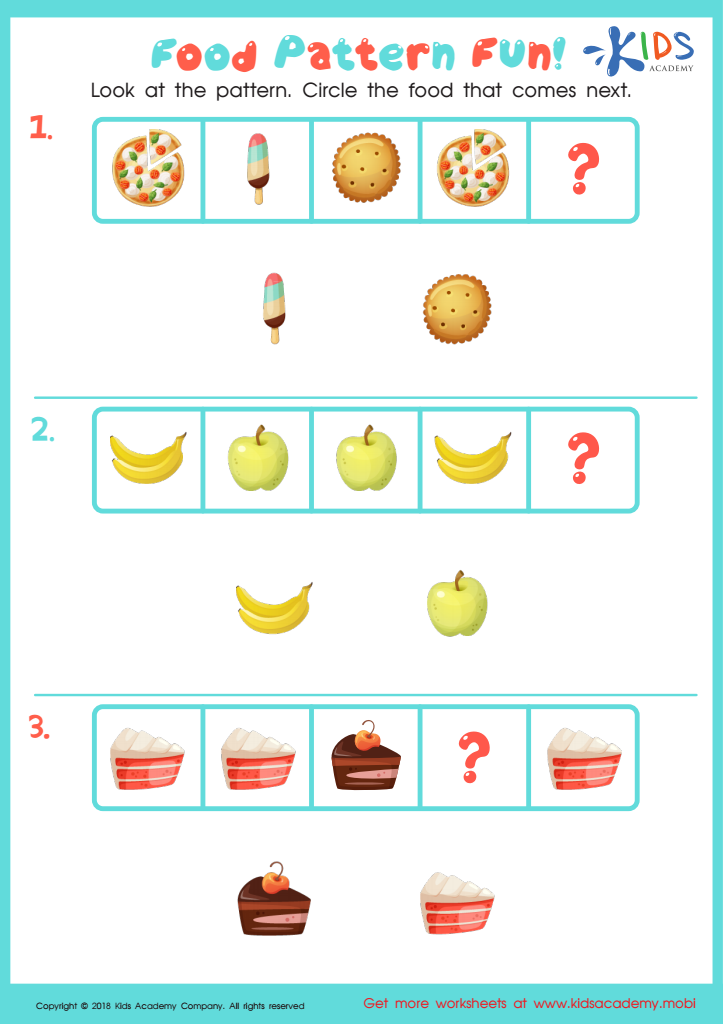

Food Pattern Fun Worksheet
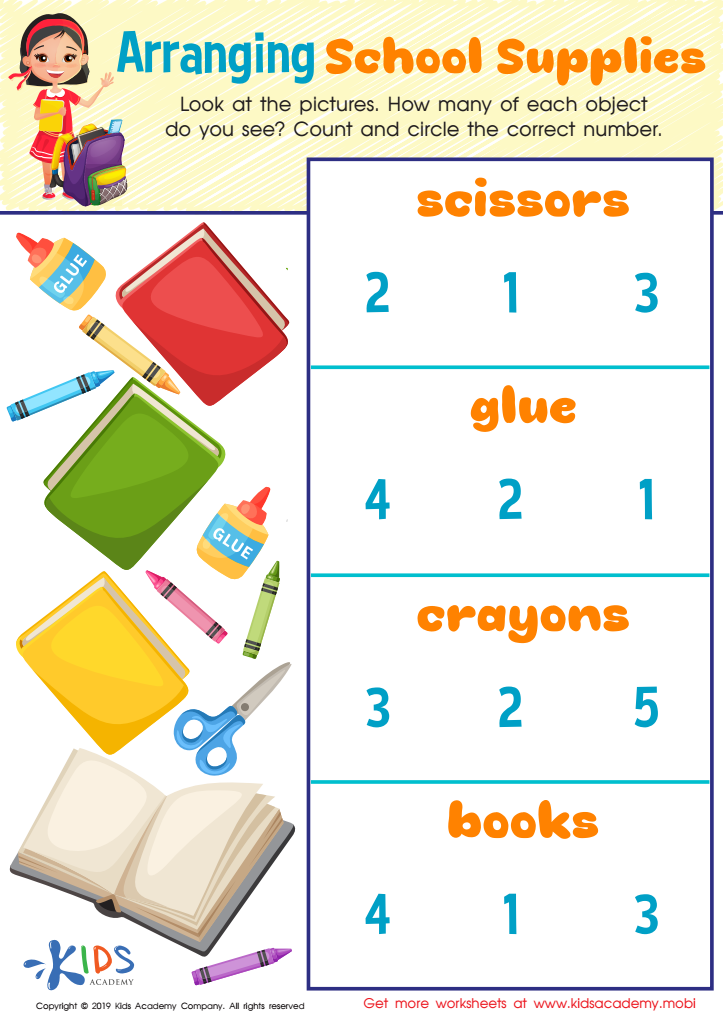

Arranging School Supplies Worksheet
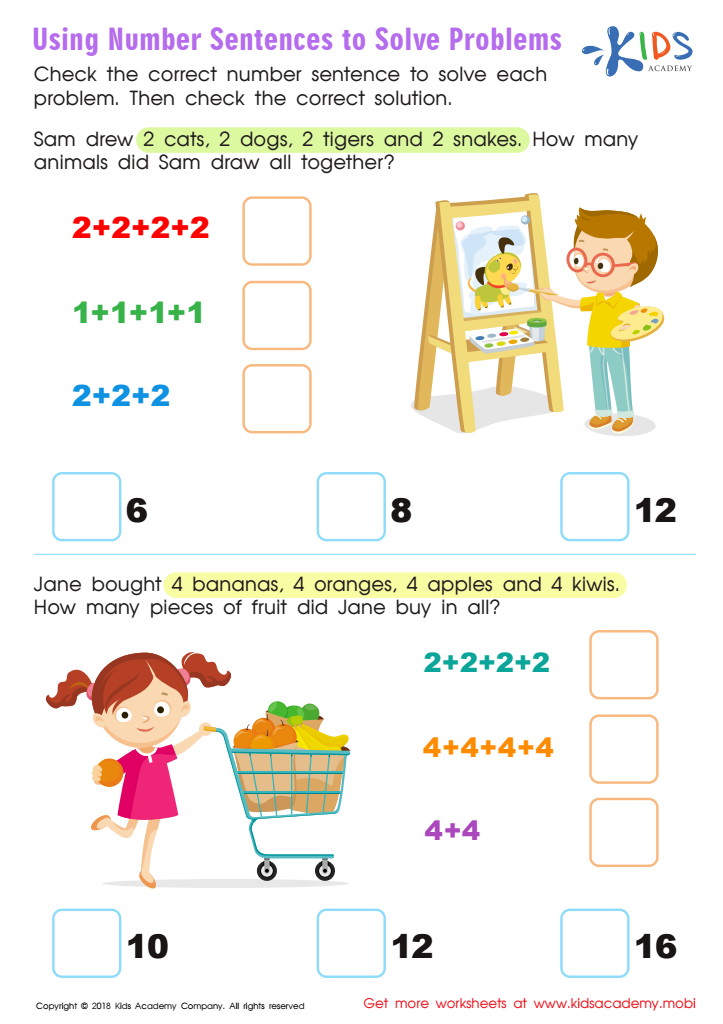

Using Number Sentences to Solve Problems Worksheet
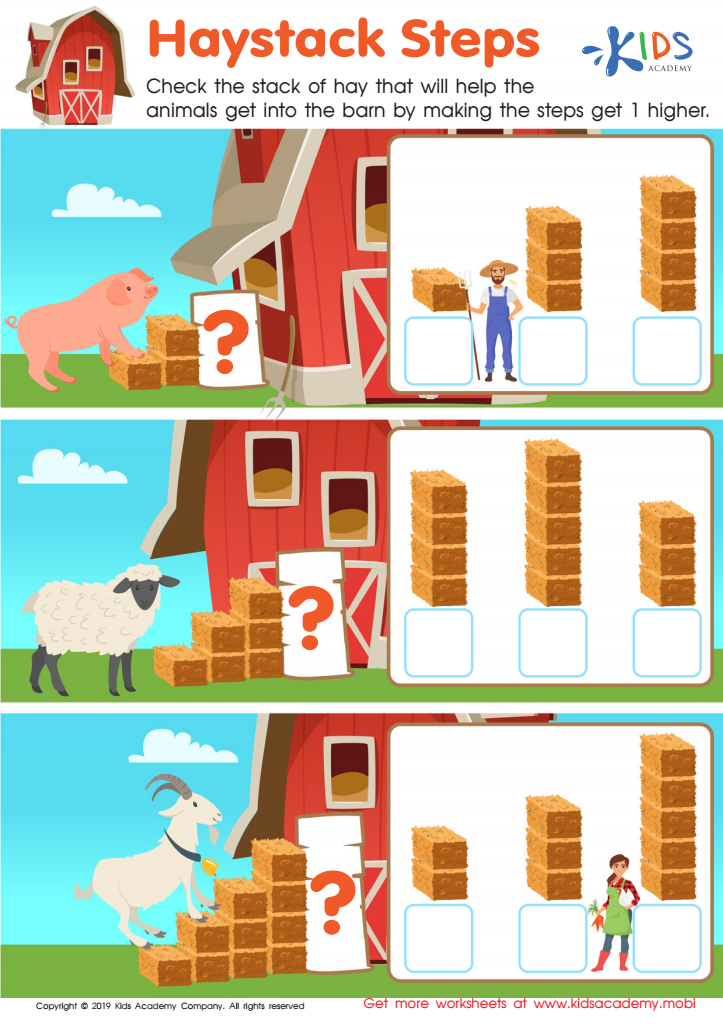

Haystack Steps Worksheet
Understanding sequences in preschool math is crucial for the foundational development of young children, and both parents and teachers should prioritize it. Sequences help children develop critical thinking and problem-solving skills by recognizing patterns and predicting future elements in a series. This understanding aligns with cognitive development milestones in early childhood, providing a strong base for more complex mathematical concepts such as addition, subtraction, division, and algebra introduced in later academic years.
Sequences also enhance memory retention and organizational skills. Children learn to follow a logical order, which translates to daily routines and tasks, helping them understand the world in a structured way. Moreover, recognizing patterns is not just confined to mathematics; it plays a significant role in language development, reading comprehension, and science. For instance, understanding the sequence of events in a story aids in narrative skills and comprehension.
Parents and teachers who focus on early sequence education support a balanced and well-rounded cognitive development process. Fun, engaging activities such as sorting objects by color, size, or shape, and sequencing stories or numbers aren't just educationally beneficial; they make learning interactive and enjoyable. Hence, understanding sequences fosters an enriched learning environment, paving the way for academic success and everyday problem-solving abilities.
 Assign to My Students
Assign to My Students
